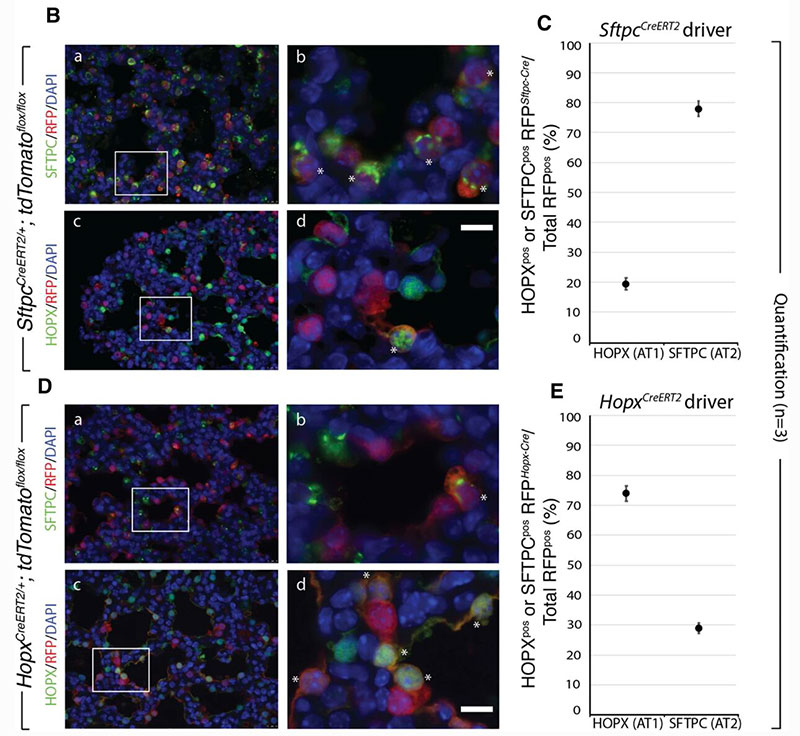Polyclonal Anti-HOPX Antibody in embryonic lung development research
Article: "FGFR2b signalling restricts lineage-flexible alveolar progenitors during mouse lung development and converges in mature alveolar type 2 cells"

New findings help build a model for the specific role of FGFR2b signalling on distal epithelial progenitors during pseudo-glandular lung development.
Jones, M.R., Lingampally, A., Ahmadvand, N. et al. FGFR2b signalling restricts lineage-flexible alveolar progenitors during mouse lung development and converges in mature alveolar type 2 cells. Cell. Mol. Life Sci. 79, 609 (2022).
In this study by Jones et al. (Cell. Mol. Life Sci. 79, 609; 2022), our Anti-Hopx polyclonal antibody (HPA030180) is used as AT1 progenitors cells lineage tracer to understand the alveolar lineage specification and differentiation of embryonic lungs.
The multiplexed immunofluorescence IHC-IF antibody staining was done in mice to mark HOPX+ cells in control and experimental lungs for the AT1 progenitor driver line.
The results suggest an AT2 (Sftpc) and AT1 (Hopx) progenitors' inter-lineage contributions, partly regulated by FGFR2b signaling.
The alveolar epithelial type 1 (AT1) and type 2 (AT2) cell lineages populate the nascent alveoli and are essential for proper lung function. However, the specification, characterization, and fate of AT1 and AT2 progenitors during embryonic lung development need to be better defined.
Read full article here.
👉 Find out more about our polyclonal Anti-HOPX antibody.
